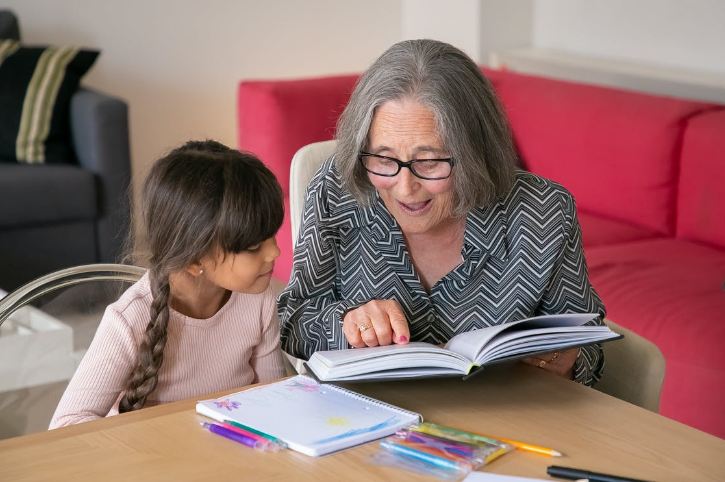Tips for Homeschooling Your Kid
While living off the grid, there are several things, such as animal care, food preservation, gardening, cooking, and many more chores, that will keep you busy and might not give you enough time to give proper attention to your kid.
Homeschooling is a task that requires proper attention according to the age of your kids, both mentally and emotionally. You can either choose a structured curriculum or even go for a more non-traditional and flexible teaching method; the requirement for time management and attention remains the same. Here are some tips and tricks to help you out with this tedious job. Let’s get started.
1. Know the Homeschooling Laws in Your Country/State
It is important to know whether homeschooling is even legal in your place of living. Almost every country has a different set of laws and regulations regarding homeschooling; some allow it completely, some to an extent, while others consider it completely illegal. For example, in the US, homeschooling is legal and normal in all fifty states. Ensure that you have researched the rules, laws, and regulations that your country or state has imposed for homeschooling before you start teaching your kids.
Moreover, there are laws regarding the curriculum and who can teach the kids as well. Either you have the credentials to be the teacher yourself, or you hire a teacher with the required credentials for the job. Learning about the rules and laws will only save you and your kids from future problems. Moreover, ensure that the place you choose to live is one of the best states for living off the grid.
2. The Approach Matters
Decide the approach you will be following while homeschooling your kids beforehand. There are different approaches to choose from; you can go for character-based learning or choose the traditional academic approach. You might even think that living skills are more important than any other education.
While living off the grid, teaching the living skills to your child is far more important, especially if you believe that your children will also opt for the same lifestyle as you. For example, living off the grid means you have to grow your own food; what would be better than teaching your child the skills required for living off the grid?
3. Let the Kids Have Periodic Breaks
Homeschooling doesn’t mean that you have to teach your kids all the time. Even if they are not going to school and learning at home, they are stills children and need breaks to refresh and recharge themselves. Make sure you give them small breaks between studying and allow them to play at this time.
Moreover, you should also decide what days are for studying and what days are off. This way, the kids will not get tired of learning and will also enjoy healthy extra-curricular activities. While living off the grid, the only way to keep your kids active and attentive is by allowing them to have some time to themselves to play physical games.
4. Make Sure Your Way of Teaching is Fun
Homeschooling should be creative, innovative, and, most importantly, fun. If you are keeping the homeschool teaching style just as rigid and boring as a traditional school, there is no good for your kid in it. Make sure the lessons you are teaching are entertaining and engaging for the kids. The best way to know whether your teaching is fun or not is by getting feedback from the kids.
Do everything that you can to make the learning process fun and exciting for the kids. The environment that allows the kids to enjoy learning ensures faster and better learning. You can use toys and other things to help younger kids learn and engage, while older kids are more attracted to visual learning.
5. Interact with Other Families Living the Same Lifestyle
Homeschooling means your kids wouldn’t be able to make friends in the classroom, i.e., they wouldn’t get the chance to socialize. Socializing is an important skill, and you need to fill this void for your kids by interacting with other families who are living off the grid.
Making friends and socializing should also be a part of homeschooling, and parents should do everything to make it easier for their children. Interacting with similar families will not only allow your kids to make friends but will also help you in getting advice from other parents as well as discussing homeschooling problems with them.
Benefits of Homeschooling While Living off the Grid
Parents have been showing more interest in homeschooling for the past years, especially those living off the grid. It is important to know about all the benefits of homeschooling before you actually opt for it.
1. Your Choice of Approach and Pace
Instead of handing over your kid to a school where the same approach is applied to every kid, by opting for homeschooling, you can choose the pace and approach for your kid’s education on your own. You are in charge of the curriculum, grade level, studying schedule, and break times as well.
2. Better Focus
The lower student-teacher ratio allows you to give full attention to the kid. It also helps the kids focus more on learning.
3. The Family Environment is More Friendly and Warm
Home is where kids learn basic life skills, and homeschooling allows them to learn a lot more with their families’ warm and friendly support.
4. Time for Being Creative
Most schools cut off the time that is necessary for helping the kids be more creative. On the other hand, homeschooling allows the kids to be free and more creative. Moreover, avoiding the traditional testing mania helps your kid be more confident and meet the arbitrary minimal standards as well.
5. Best for Special Situations
Homeschooling is great for an off-the-grid lifestyle and for families who travel a lot, military families, or others who have their own reasons for not going to school regularly. Having the independence of learning while living away from the city, traveling, or in other conditions is more than a blessing for many.
Conclusion
The off-Grid lifestyle is now attracting more and more people as the world evolves. It sure has its benefits, but to be able to enjoy all these pros, you need to plan beforehand. From your everyday life to your kids’ education, everything needs to be discussed and planned with your family and children as well. In short, you have to bid farewell to all the public utilities, facilities, and even technology.



